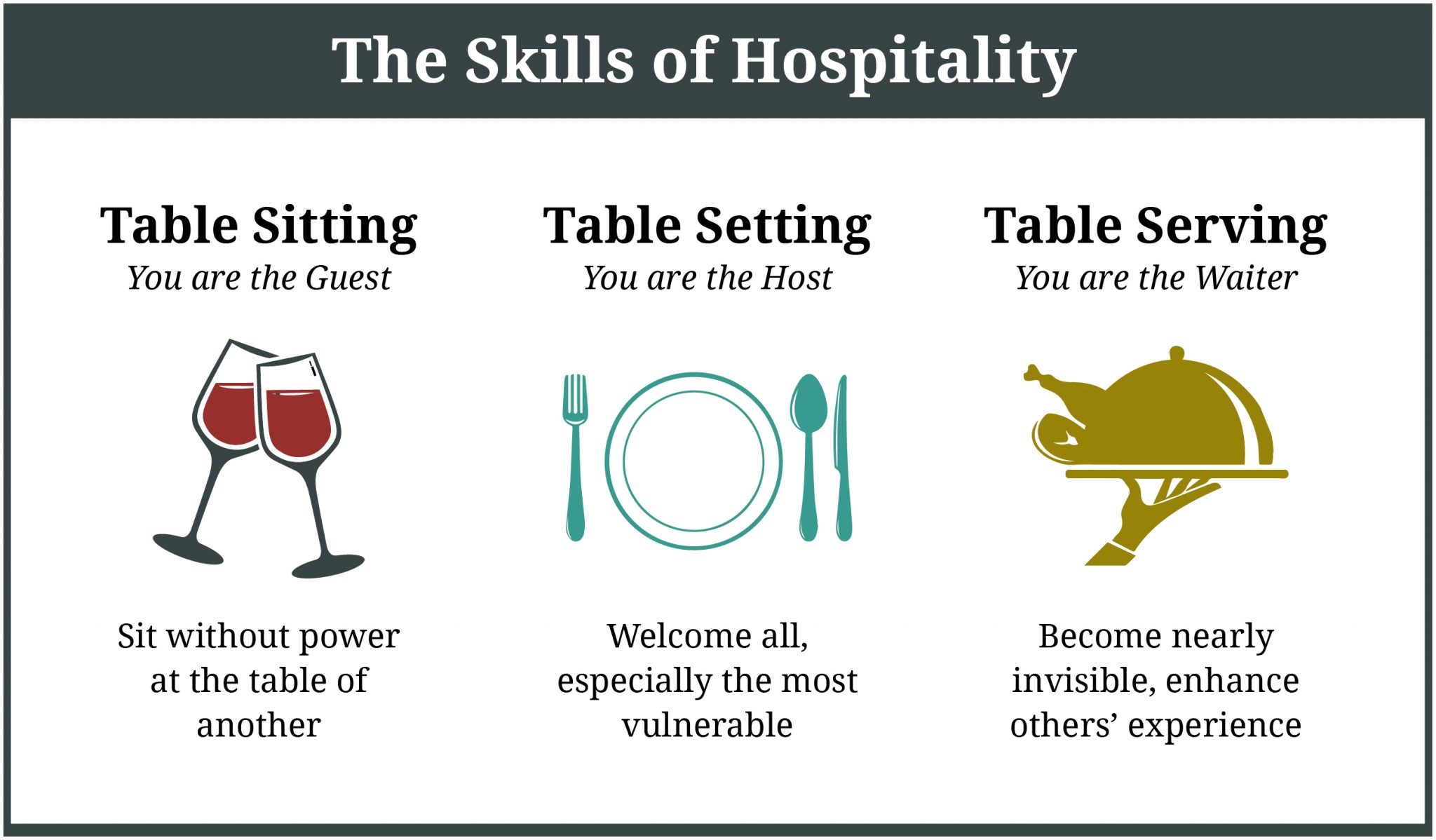Last month I wrote about the various tables from which SLF does its work. The methodology of Table Sitting, Setting and Serving. Well, I just came from the Breaking Bread/Breaking Barriers lunch at the KROC Center. This is a monthly gathering SLF hosts so folks can build relationships and hear from a local leader about community shalom: justice, peace and safety.
 This month we heard from Josh Graves, CEO of Catholic Community Services. In June we’ll hear from Osvaldo Avila, board chair of Salem-Keizer Public Schools. Other speakers have included Pastor Ronnie Brooks, Keizer Mayor Cathy Clark, civic leader Gregg Peterson, and police chiefs John Teague (Keizer) and Trevor Womack (Salem). Josh shared about the key concepts of Catholic Social Teaching. Now, before I lose some folks on theological or political grounds, please bear with me. It’s good stuff. And that’s exactly what Breaking Bread/Breaking Barriers is for: idea-sharing and productive dialogue with intelligence, goodwill and candor in the Socratic tradition – a concept Chief Teague shared with us.
This month we heard from Josh Graves, CEO of Catholic Community Services. In June we’ll hear from Osvaldo Avila, board chair of Salem-Keizer Public Schools. Other speakers have included Pastor Ronnie Brooks, Keizer Mayor Cathy Clark, civic leader Gregg Peterson, and police chiefs John Teague (Keizer) and Trevor Womack (Salem). Josh shared about the key concepts of Catholic Social Teaching. Now, before I lose some folks on theological or political grounds, please bear with me. It’s good stuff. And that’s exactly what Breaking Bread/Breaking Barriers is for: idea-sharing and productive dialogue with intelligence, goodwill and candor in the Socratic tradition – a concept Chief Teague shared with us.
Life and Dignity of the Human Person. Every human is created in the image and likeness of God.
Call to Family, Community and Participation. The human person is not only sacred, but social. How we organize our society – socially, legally, economically, and politically – directly affects human dignity and the ability of every person to grow in community.
Solidarity. We are one human family. We are our neighbors’ keepers, wherever they may be.
The Dignity of Work. The economy must serve people, not the other way around. Work is more than a way to make a living, it is a form of continuing participation in God’s creation.
Rights and Responsibilities. Every person has a fundamental right to life – the right that makes all other rights possible. Each person also has a right to the conditions for living a decent life: food, health care, housing, education and employment.
Option for the Poor and Vulnerable. A fundamental measure of our society is how we care for and stand with our poor and vulnerable brothers and sisters.
Care for God’s Creation. The world that God created has been entrusted to all of us. Our stewardship of the earth is a form of participation in God’s act of creating and sustaining the world.
In these precepts I see both compassion and empowerment (not entitlement). I hear “we” rather than “us and them.” I perceive neither “left vs. right” … “progressive vs. conservative.” There’s a strong theological construct to be sure, but plenty of room for people-of-faith and people-of-goodwill. I can’t wait to learn more on third Mondays at lunch. Email me for details (sam@salemLF.org).
